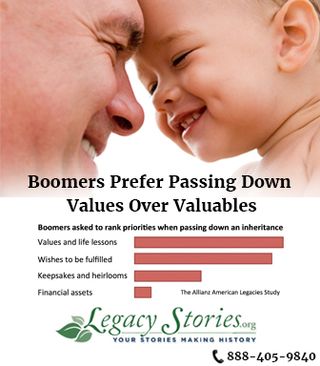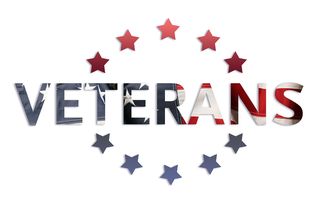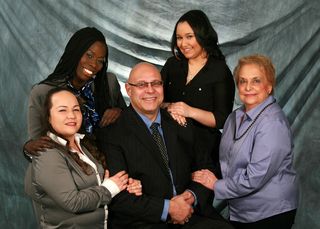On the second day of the Lawyers with Purpose Tri-Annual Practice Enhancement Retreat in Orlando, there was a focus session on the Infrastructure Track called “Bridging the Generation Gap,” presented by Susan Hunter. My presence there was mandatory, as I had been assigned to administrative duties as an employee of Lawyers with Purpose. However, it was also my treat, because I am a big fan of Susan’s presentations and knew I was in for an informative and humorous session – and I was right. Susan talked about the three generations that make up her law firm team: The Baby Boomers, Generation X, and the Millennials. She also explored the challenges and opportunities that may occur when working with someone not from your own generation, as well as the growth mindset needed to bridge this gap.
 Among the various characteristics of the Millennials noted was their hyper-ease with technology, especially social media, predominantly via smartphones. It was cited that 98% of Millennials have a smartphone. And it is the smartphone that is usually blamed for promoting isolation and the decrease in face-to-face interactions in real time – not FaceTime. But, in defense of my smartphone, I found that I related more to the Millennials who work in our firm during this trip because of it than I think I would have otherwise. Don’t get me wrong, there was also plenty of good, old-fashioned team building in the form of conversations, brainstorming, card and board games, as well as one night with a home-cooked meal prepared by team members. However, I must confess that our smartphones did play an important part in bringing us together as a team.
Among the various characteristics of the Millennials noted was their hyper-ease with technology, especially social media, predominantly via smartphones. It was cited that 98% of Millennials have a smartphone. And it is the smartphone that is usually blamed for promoting isolation and the decrease in face-to-face interactions in real time – not FaceTime. But, in defense of my smartphone, I found that I related more to the Millennials who work in our firm during this trip because of it than I think I would have otherwise. Don’t get me wrong, there was also plenty of good, old-fashioned team building in the form of conversations, brainstorming, card and board games, as well as one night with a home-cooked meal prepared by team members. However, I must confess that our smartphones did play an important part in bringing us together as a team.
My use – excuse me – our use of the smartphone during our road trip from Atlanta to Orlando as well as during the retreat was interactive. First and foremost, we used it to get information like researching recommended places to eat along I-75 or finding the cheapest gas when it was time to refuel. We also used the mapping capabilities of the smartphone extensively to direct us on our route, avoid traffic, and keep us up to date on our ETA despite the pit stops. Then there is what may be the default use of the smartphone: communication. Our firm stayed at a timeshare condo a few minutes from the hotel where the retreat occurred, and this required some coordination to accommodate the needs of all nine team members. We relied on text messages and calls to remain in contact and synchronize needed rides. During the road trip, we would also send regular text messages to Victoria, our supervisor, to give her status updates on our arrival both to Orlando and Atlanta.
Another way we communicated via smartphone was by sharing photos the team took. This included sharing funny pictures of Goofy and the team at the reception, but they also served to document our team’s work at the retreat, like the photo we shared of our completed, collaborative Brainstorming Sprints sheet. Lawyers with Purpose even provided a smartphone app called EventBoard for the retreat and the Practice with Purpose program. The app provides an interactive conference event guide with the schedule, speaker information, sponsors and their websites, floor plans, and online evaluation forms. I really like how the events grayed out on the schedule as the day went on so you could immediately see the highlighted current and upcoming sessions. Sure, there were technical difficulties. When I first opened the application, no details loaded for the sessions and the evaluation forms were blank. However, once I closed the other 20 apps that I was unconsciously, simultaneously running on my iPhone, EventBoard worked quite well.
I will confess that my first sight of some of the Millennials in our firm on any given morning during the retreat was in bed by the light of a smartphone furiously typing. Perhaps they were well on their way to the 50 or more text messages that 50% of Millennials surveyed will send in a day. But I can’t blame them, as the first thing I did every night and every morning while away was to text my family to say “Hi.”
Finally, we used our smartphones to play music enjoyed by the team as a whole. We took turns depending on who had a particular song we wanted to hear. No one had brought a portable speaker, and the van’s stereo system had no speakers in the passenger area, thus we had to improvise with one of those pairs of giant headphones that Millennials often sport to broadcast the music for all to hear. As a result, the music was a little tinny and not as loud as I would have liked. Nonetheless, it relieved the monotony of the road trip as we sang, hummed, and/or danced to music from all three generations and, more importantly I think, moved in harmony as a great team should.
If you want to learn more about Lawyers With Purpose and in particular what it takes to have a successful practice, click here and download our FREE eBook "The Five Essential Roles for A Successful Practice".
Here Is Just Some of What We'll Reveal:
- Discover the Five Key Roles that must be fulfilled to truly have a successful law firm.
- What you need at all five levels.
- How each role impacts the organization and its ability to perform.
- How each role interacts to achieve ultimate success.
- The bottom line of what you need to create a purposeful practice
- … and so much more!
By Sabrina A. Scott, Paralegal, The Elder & Disability Law Firm of Victoria L. Collier, PC and Director of VA Services for Lawyers With Purpose.
Victoria L. Collier, Veteran of the United States Air Force, 1989-1995 and United States Army Reserves, 2001-2004. Victoria is a Certified Elder Law Attorney through the National Elder Law Foundation; Author of “47 Secret Veterans Benefits for Seniors”; Author of “Paying for Long Term Care: Financial Help for Wartime Veterans: The VA Aid & Attendance Benefit”; Founder of The Elder & Disability Law Firm of Victoria L. Collier, PC; Co-Founder of Lawyers with Purpose; and Co-Founder of Veterans Advocate Group of America.









